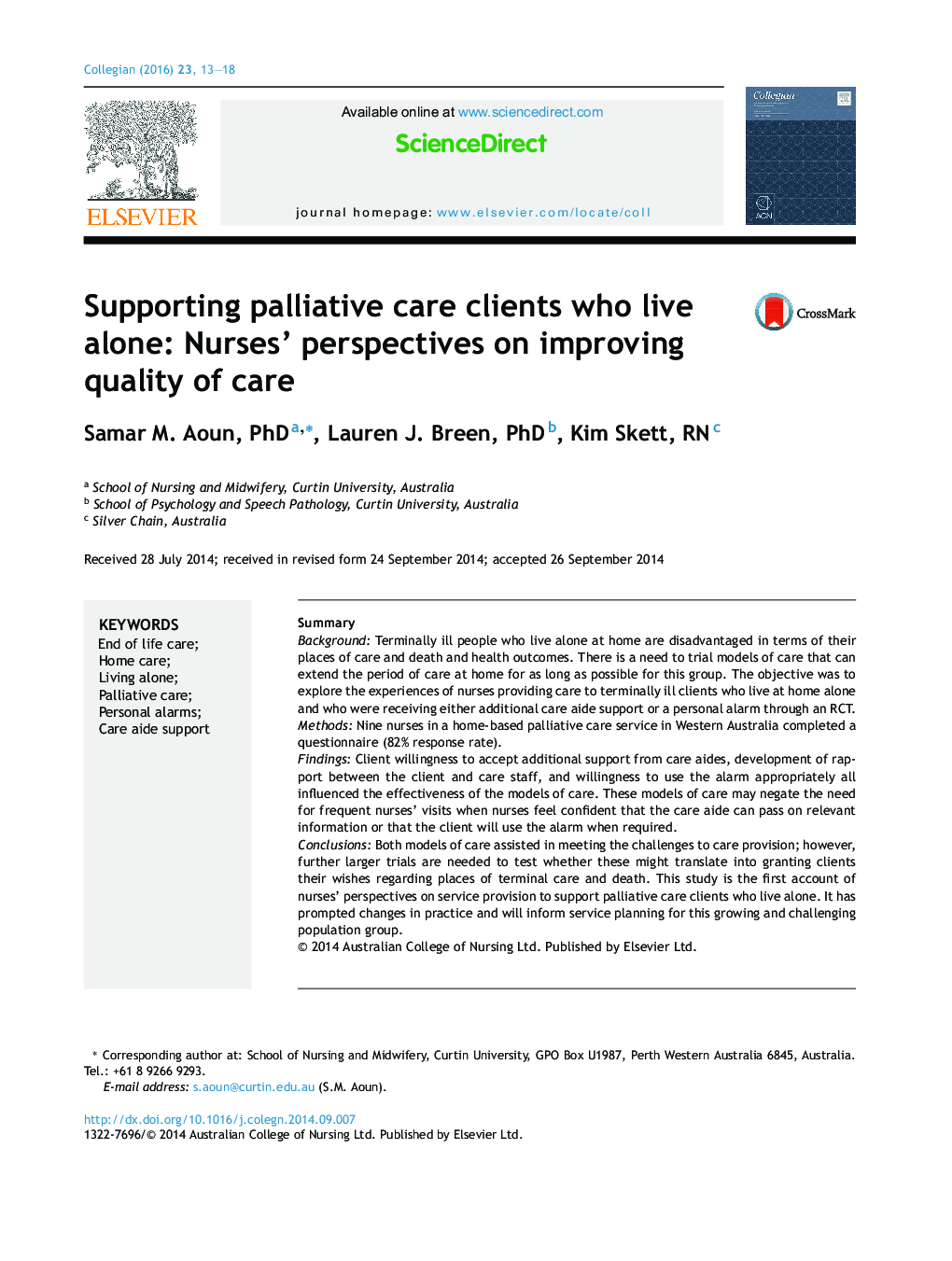| Article ID | Journal | Published Year | Pages | File Type |
|---|---|---|---|---|
| 2646107 | Collegian | 2016 | 6 Pages |
SummaryBackgroundTerminally ill people who live alone at home are disadvantaged in terms of their places of care and death and health outcomes. There is a need to trial models of care that can extend the period of care at home for as long as possible for this group. The objective was to explore the experiences of nurses providing care to terminally ill clients who live at home alone and who were receiving either additional care aide support or a personal alarm through an RCT.MethodsNine nurses in a home-based palliative care service in Western Australia completed a questionnaire (82% response rate).FindingsClient willingness to accept additional support from care aides, development of rapport between the client and care staff, and willingness to use the alarm appropriately all influenced the effectiveness of the models of care. These models of care may negate the need for frequent nurses’ visits when nurses feel confident that the care aide can pass on relevant information or that the client will use the alarm when required.ConclusionsBoth models of care assisted in meeting the challenges to care provision; however, further larger trials are needed to test whether these might translate into granting clients their wishes regarding places of terminal care and death. This study is the first account of nurses’ perspectives on service provision to support palliative care clients who live alone. It has prompted changes in practice and will inform service planning for this growing and challenging population group.
